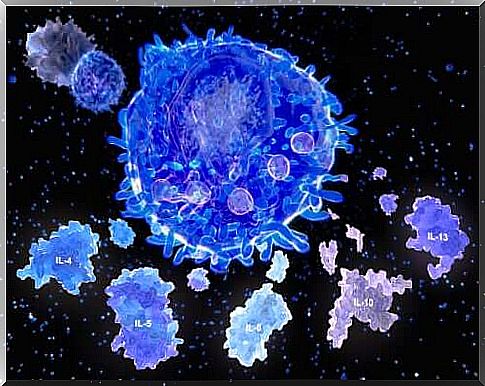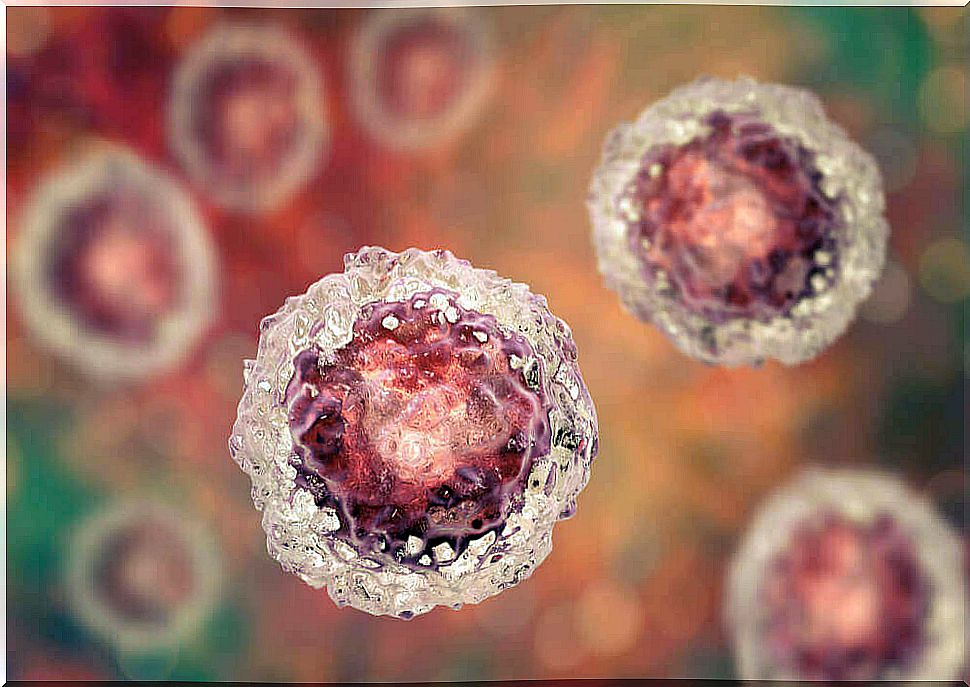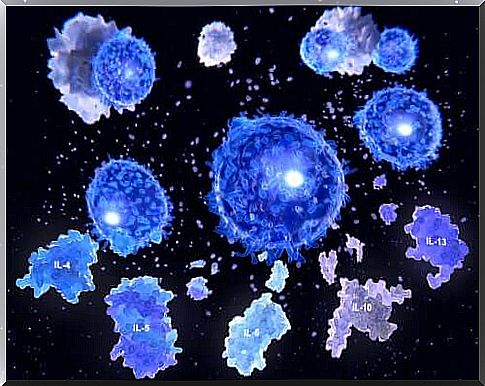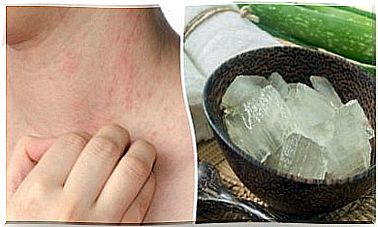Cytokine Shock And The Coronavirus
Cytokine shock is a process that rarely occurs in patients with COVID-19. Nevertheless, this process deserves to be explained in detail.

The worst moment of the coronavirus epidemic in France seems to have passed. The daily death toll is declining and the number of people cured is now higher than the number of people newly infected. Looks like our healthcare system is finally starting to breathe a little. This is why the government is currently in the process of organizing gradual deconfinement. This process will take place in several phases.
In this context of a pandemic, many people have not yet fully grasped all the complex concepts linked to the disease. One of these complex concepts is cytokine shock. Before getting to the heart of the matter, it is necessary to clarify certain points beforehand.
Some information to clarify about COVID-19
During the month of March, the overall case fatality rate from the coronavirus stood at 3.7%. In France, the recently estimated mortality rate is 35 deaths per 100,000 inhabitants (healthy and sick).
The probability of a fatal outcome of the disease varies with age. Before the age of 40, it is estimated that less than 0.2% of those infected die, and among the most vulnerable, namely those over the age of 80, the percentage rises to almost 15 %.
If it is important to clarify this information, it is because the much feared cytokine shock affects only a very small percentage of sick people. So there is no need to worry too much. We only want to inform you about a reality related to the coronavirus, and not to alarm you.

When the immune system serves us …
Diseases such as COVID-19 or influenza Influenza , in the most serious cases, can be fatal due to the overactivation of the immune system. This process is known as cytokine shock.
Cytokines are small proteins released by different cells in the body. These cells include those that coordinate our body’s response to pathogens by producing inflammation.
Cytokines direct immune cells such as T cells or macrophages to the site of infection. This is a retroactive process: the release of cytokines promotes the production of more of these proteins by immune cells.
This very effective protection system can become too effective. Let’s take an example… When the virus responsible for COVID-19 enters the lungs, cytokines direct antibodies to this area of the body so that they fight against the pathogen by producing local inflammation. Excessive release of cytokines or an overly powerful feedback cycle can cause hyper-inflammation of the lung tissue. This hyper-inflammation can seriously damage the patient’s body, or even end his life.
Cytokine shock is common in the elderly, even outside of a coronavirus pandemic. This process is associated with other viral infections such as influenza, SARS and MERS, and still other diseases such as multiple sclerosis and pancreatitis.
What to do about cytokine shock?

To keep things clear, we will avoid using confusing terminology here when explaining what the action to counter cytokine shock consists of.
To put it simply, we can say that the action to counter cytokine shock is to reduce the efficiency of the immune system. This answer is amazing, isn’t it?
For this, health professionals resort to steroids. We know that, from time to time, these hormones reduce the intensity of the immune response. However, their effectiveness in patients suffering from COVID-19 has not yet been clearly proven.
The problem is that it is really difficult to find a balance within the immune system : the immune system must be functional enough to fight the virus, but not too much so that the patient’s life is not in danger.
There is still some good news on the subject. A study conducted in China used an antibody that inhibits the immune response to some extent. This antibody is used in patients with arthritis or cancer and cytokine shock.
The tocilizumab antibody (Actemra) has been administered to 21 patients with severe form of COVID-19. After a few days, the fever and other symptoms improved considerably. Of these 21 patients treated, 19 survived and were able to return home after two weeks.
Some countries are now testing this antibody and other similar antibodies. This is the case in Italy, for example. However, as you can see, the samples are too small to be able to guarantee full effectiveness.
In short … Is cytokine shock a cause for concern?
Here we have exposed the worst-case scenario, an exceptional situation in which the immune system is so effective that it ends up doing a disservice to the patient and putting his life in danger. It doesn’t mean that getting the disease will be life threatening. We would like to remind you that cytokine shock concerns a minority of cases and that it is therefore an exceptional process.
Nevertheless, this is one more reason to understand the importance of social distancing measures in these times of the coronavirus pandemic as well as the notion of civic responsibility. This process is rare, but it does exist. It should therefore not be ignored, in particular to protect the most vulnerable people in the face of the disease.









